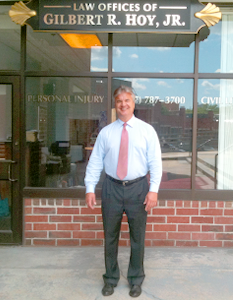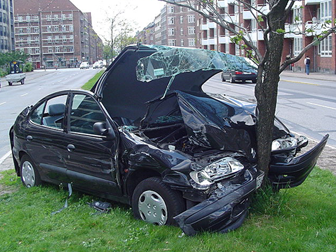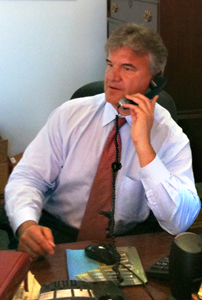“Liquor liability” is a term that covers any situation where an injured person seeks to hold a social host, bar, restaurant or other provider of alcoholic beverages liable for causing personal injury or death. The standards that apply to liquor liability depend on a number of factors, including the age of the intoxicated person; whether the intoxicated person caused injury to himself or to a third party; and whether the person or business that served the intoxicating liquor was a licensed establishment or social host.
The Massachusetts Supreme Judicial Court first recognized a cause of action against a licensed establishment in 1968 with the case of Adamian v. Three Sons, Inc. With that case, the Court declared that it would no longer permit a “waste of human life” on Massachusetts highways due to reckless drinking and driving. To successfully hold an establishment liable for a plaintiff’s injuries, the plaintiff must prove a number of factors. First, the plaintiff must prove that the intoxicated driver was a customer at the defendant establishment. Next, the plaintiff must demonstrate that the establishment served the driver alcohol at a time when the driver was intoxicated and servers knew or should have known that the driver was intoxicated. The plaintiff also must prove that the driver did, in fact, drive the vehicle under the influence of alcohol, causing injury. And, finally, that operation of a motor vehicle must be shown to have been reasonably foreseeable by the defendant establishment such that a person of ordinary prudence would not have served the intoxicated driver.
Each of these elements must be proven in order for the defendant establishment to be held liable. For example, Massachusetts courts have held that there is no liability where an intoxicated patron enters a bar already heavily intoxicated, even if the establishment knowingly permits that person to drive, so long as the establishment did not serve the person alcohol.
An important part of any liquor liability case is examining what the establishment knew. Did they know, or should they have known, that the person was intoxicated? Could the establishment foresee that the person was likely to drive? Did the establishment know they were serving alcohol to a minor? Knowledge is important in these cases, and the Massachusetts Supreme Judicial Court has held that an establishment’s knowledge is measured by the cumulative knowledge of its employees. For example, the bartender might have had reason to know the person was intoxicated, and the bouncer might have had reason to know that the person was planning to drive later that night. This cumulative knowledge, taken together, is enough to prove that the defendant establishment knew the intoxicated person was likely to drive.
Minors can create an additional “knowledge problem” in the liquor liability landscape because many minors who underage drink at establishments do so with the use of fake IDs. Bars and restaurants are not strictly liable for serving a minor. If a server reasonably relies on a driver’s license when serving alcohol to a minor, that reliance can be used as a defense against liability. Additionally, the law does not require that the alcohol be served “hand to hand” to the minor for liability to attach. If the establishment knew or reasonably should have known that alcohol purchased by an adult was intended for minor consumption, they can be held liable just the same as if they had sold directly to an underage person.
Liquor liability is not limited to licensed establishments, however, and many claims are brought against social hosts who served alcohol in their own homes to intoxicated persons. Social hosts are liable to any person who is injured by an intoxicated guest’s negligent operation of a motor vehicle if the social host knew or should have known that the guest was intoxicated; served that person or allowed that person to serve themselves more alcohol; and, as a result, the guest negligently operated a vehicle under the influence, causing the third party injuries.
It is not necessary for a Massachusetts social host to physically serve the intoxicated guest alcohol for liability to attach. All that is required is that the host paid for or had control over the alcohol. Furthermore, it is not required that the social host acted in his or her own home. Although the home is the most common venue of social host liability, a person can be held liable under social host liability for simply buying another person a drink at a licensed establishment.
When the intoxicated person is also the injured plaintiff, the standards of law differ slightly. For example, a social host is not liable to an adult guest who becomes intoxicated and injures himself or herself as a result. The law is undecided, as of yet, as to whether a social host is liable to a minor guest who becomes intoxicated and injures himself or herself.
As for licensed establishments, injuries to the intoxicated person are covered under Massachusetts General Laws Chapter 231, Section 85T. Minors are permitted under this statute to seek damages when they have been injured as a result of their own intoxication after having been served alcohol at a licensed establishment. What is unclear, however, is whether adults who are still under the legal drinking age may recover.



